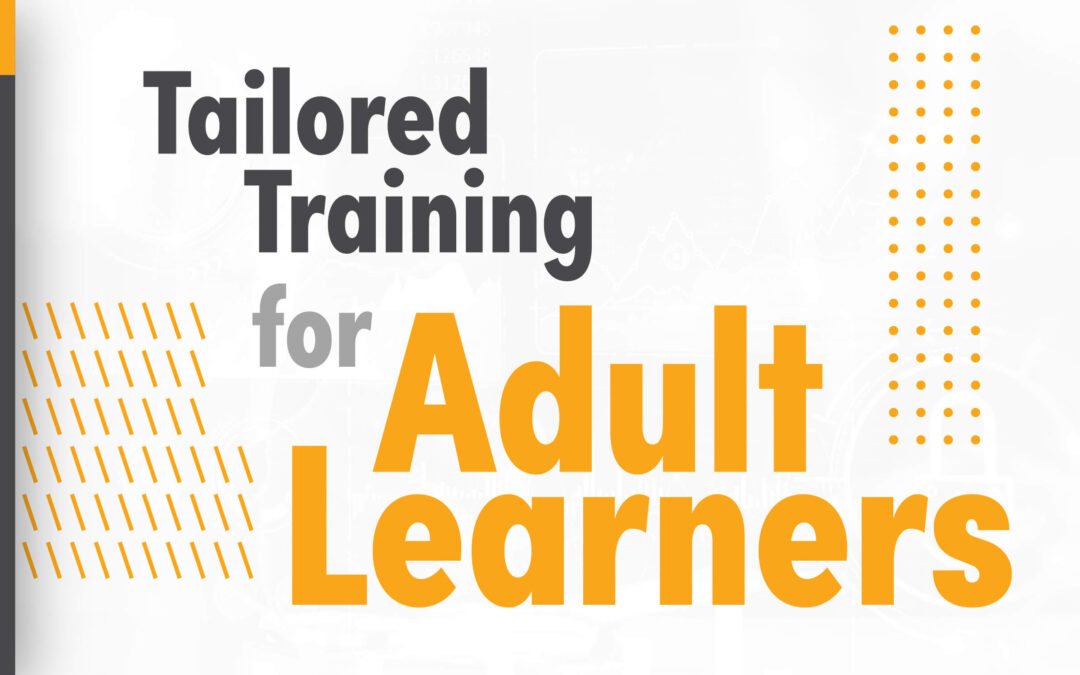If you’re in retail, you know training is a big part of the game. You’re constantly teaching your sales associates about new products, procedures, or customer service strategies. Often, the focus is on what to teach, but have you ever taken a moment to ponder how to teach? How can you make sure your team quickly picks up, remembers, and uses the information you’re sharing? That’s where andragogy, a more effective approach to adult learning, comes in.
Understanding Andragogy: It’s Simpler Than It Sounds!
Andragogy might seem like a big, intimidating word, but it’s just a fancy way of saying “how adults learn best.” It’s different from pedagogy, which is all about teaching kids. Andragogy digs into the best ways to help grown-ups learn.
This is super important because adults and kids learn in different ways. What works for kids might not land so well with adults. As a retailer, this means you need to shift your training methods to suit your grown-up team.
Digging into Andragogy: Five Key Ideas
Andragogy is based on 5 principles. These principles can help you design training that doesn’t just give information but truly helps your team learn and apply new knowledge.
1. Independence in Learning: Grown-ups like to be in charge of their learning. They want to pick how they learn new things. When you let them choose, they’re more likely to pay attention and remember what they’ve learned. In fact, research shows that 72% of adults prefer to choose their learning methods.
2. Knowing the Why: Adults want to understand why they’re learning something before they dive in. They need to see the purpose behind the training. When they do, they’re more likely to remember what they’ve learned.
3. Drawing on Experience: Adults come to your training with a lot of life experience. You can use that as a building block for new learning. This can make training more relatable and easier to understand.
4. Linking Learning to Goals: Adults are keen to learn when they can see a clear link between what they’re learning and their personal or work goals. If you use real-life examples in your training, you can make it more relevant and engaging. Studies show that adults who can see the real-world application of what they’re learning are more successful in using their new knowledge at work.
5. Active Learning: Adults learn best when they’re not just sitting and listening. They need to be part of the action. Get them involved by encouraging questions and feedback, and by creating hands-on activities. This type of interactive learning can boost understanding and memory.
Bringing Pedagogical Mediation into the Mix: Making Andragogy Shine
Once you’ve grasped the five core principles of andragogy, it’s time to sprinkle in a little extra magic: pedagogical mediation. This is a teaching strategy that can be incredibly helpful in adult learning scenarios. It’s all about actively guiding the learning process to help adults link new knowledge to what they already know, resulting in deeper understanding and longer-lasting memory.
Guiding the Journey: The Role of the Mediator
In pedagogical mediation, the trainer (that’s you!) plays a crucial role. You’re not just a presenter of information, you’re a guide. Your job is to make connections between new information and your team’s existing knowledge. It’s like helping them build bridges from what they already know to what they’re learning. These bridges make the new information feel familiar and easier to grasp.
Making Connections: Tying New to Known
One way to do this is by bringing their knowledge to the table. Ask your sales associates what they already know about the topic they’ll be trained on. This can either be the first part of the training session, if it is in-person, or even a survey or poll on your learning platform. You’ll be amazed at the wealth of experience and insight they bring to the table. Use this as a launchpad for the new information you’re sharing. Draw connections between what they’ve shared and what you’re teaching. This helps them feel more connected to the material and more invested in the learning process.
Interactive Learning: Boosting Engagement and Understanding
Pedagogical mediation is all about interaction. The more your sales associates can actively engage with the material, the better they’ll understand and remember it. Incorporate hands-on activities, encourage questions and discussion, and provide frequent opportunities for them to apply what they’re learning. You might even introduce problem-solving scenarios that let your sales associates try out their new skills in a safe, supportive environment.
Reflective Practice: Enhancing Learning through Reflection
Another key aspect of pedagogical mediation is reflection. After each course, give sales associates an opportunity to reflect on what they’ve learned. Ask them to consider how they can apply this new knowledge to their roles. You might encourage them to jot down their thoughts in a learning journal or later share it with their peers. This practice of reflection helps to cement new knowledge and makes it more likely they’ll use it in their jobs.
Wrapping Up
Training your sales associates is so much more than presenting information. It’s about guiding them on a learning journey. It’s about making connections, fostering interaction, and encouraging reflection. By understanding and applying the principles of andragogy and pedagogical mediation, you’re equipping your sales associates with the knowledge and skills they need in a way that resonates with them. This boosts their job satisfaction and performance, making your business even more successful.

Interesting